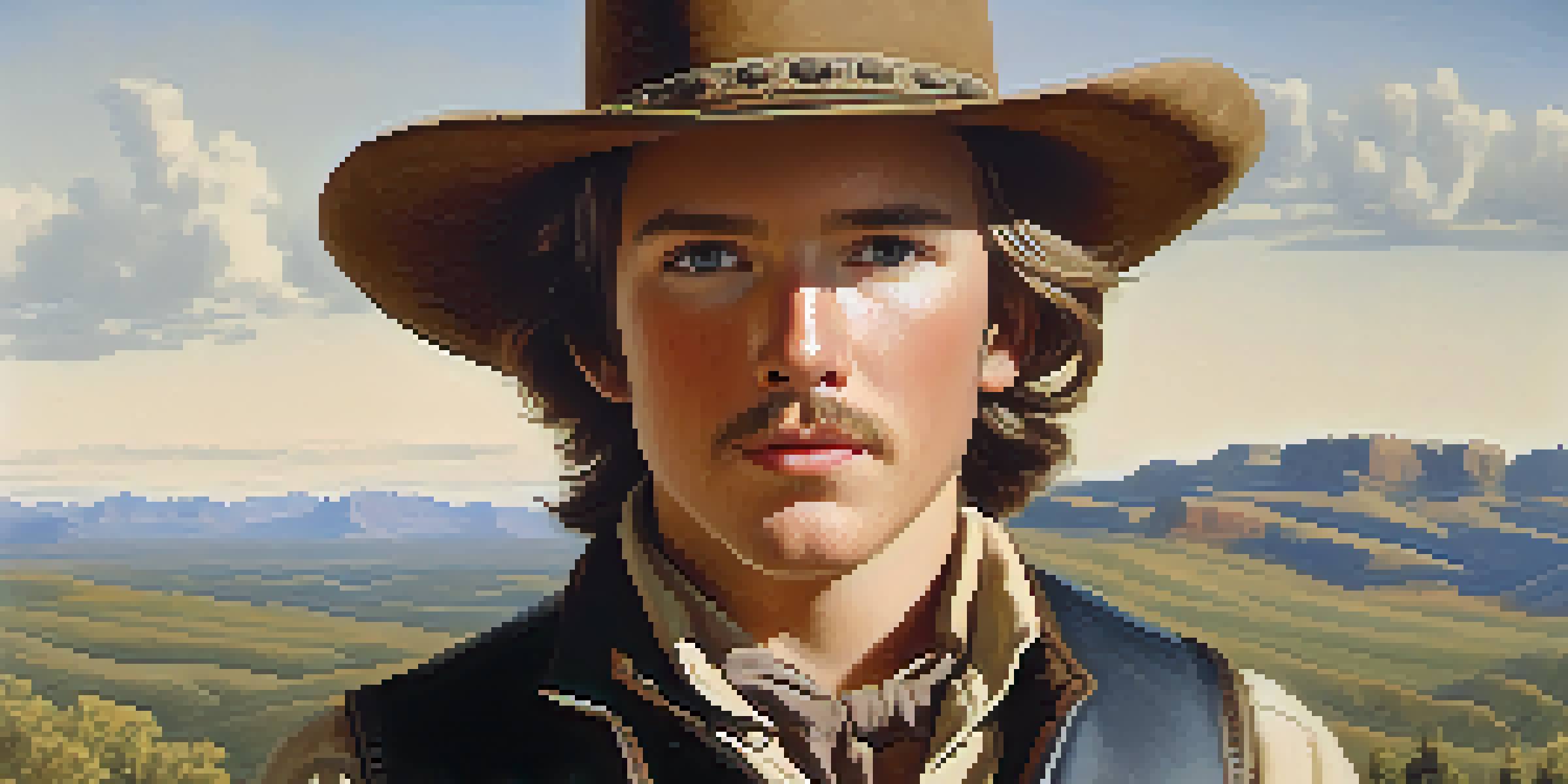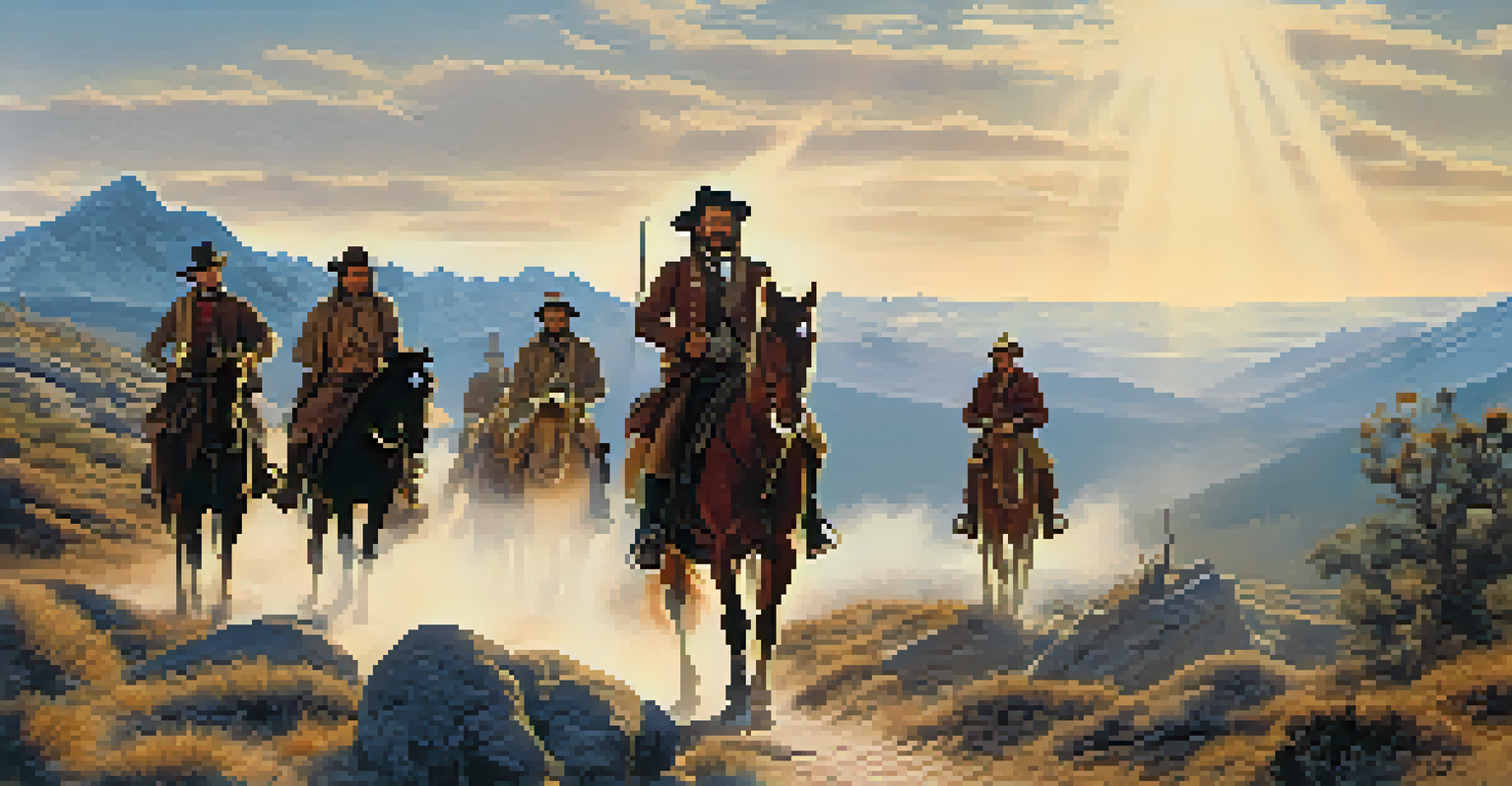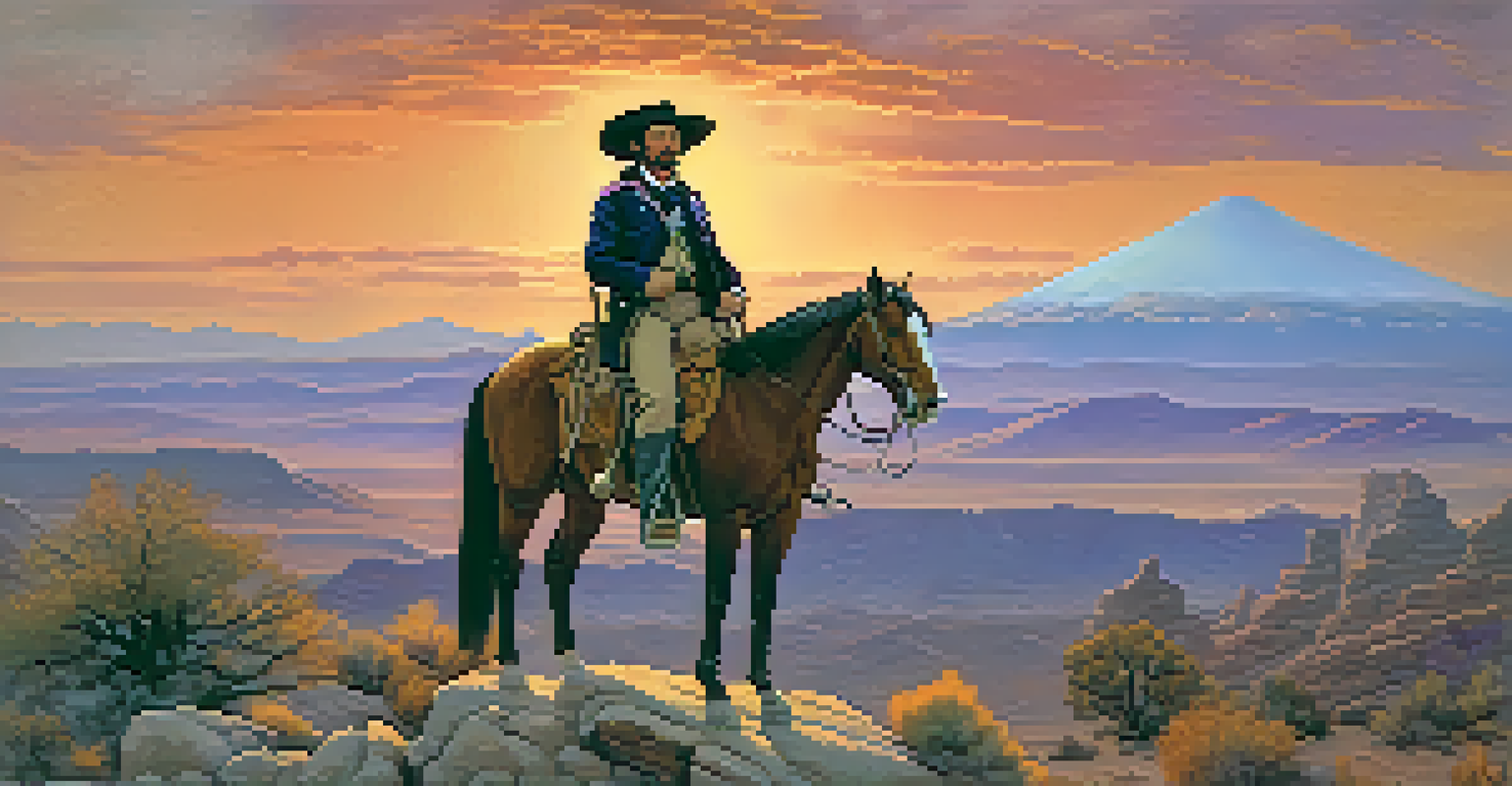Kit Carson: Frontiersman and Guide of the American West

Early Life of Kit Carson: A Humble Beginning
Kit Carson was born on December 24, 1809, in Richmond, Kentucky. Growing up in a large family, he was no stranger to hard work and the outdoors. By the age of 16, he had already left home to seek his fortune in the wilderness, which set the stage for his legendary adventures ahead.
The man who moves a mountain begins by carrying away small stones.
Carson's early experiences were marked by the rugged landscapes of the American frontier. He learned essential skills such as hunting, trapping, and navigating the vast, often treacherous terrain. These formative years shaped him into a resourceful and resilient individual, qualities that would serve him well in his future endeavors.
His journey eventually led him to the Missouri River, where he would find opportunities as a fur trapper. This initial foray into the wilderness would ignite a passion for exploration and adventure that defined his life.
The Rise of a Frontiersman: Kit Carson's Expeditions
As the 1830s rolled in, Kit Carson became a prominent figure in the fur trade, known for his exceptional skills as a trapper and guide. His work took him deep into the mountains and across the plains, where he developed a reputation for reliability and bravery. This reputation soon caught the attention of explorers and settlers alike, eager for his guidance.

Carson's expeditions were not just about trapping; they were also about mapping uncharted territories. He played a significant role in several expeditions, including those led by John C. Frémont, where his knowledge of the land proved invaluable. These journeys contributed to the growing interest in the American West, paving the way for future settlers.
Kit Carson's Early Adventures
Kit Carson's early life as a trapper and guide shaped his legendary status in the American West.
Through his adventures, Carson encountered various Native American tribes, fostering relationships that would later influence his role as a guide. His interactions with these communities were complex, often marked by both cooperation and conflict, reflecting the tumultuous nature of westward expansion.
Kit Carson and the Mexican-American War
The Mexican-American War (1846-1848) was a pivotal moment in Carson's life. He served as a scout and guide for the U.S. Army, leveraging his extensive knowledge of the Southwestern territories. His expertise helped the military navigate unfamiliar lands, making him an essential asset during the conflict.
Adventure is worthwhile in itself.
Carson's bravery during the war did not go unnoticed. He participated in several key battles, showcasing his leadership and tactical skills. His contributions were essential in securing victories that would ultimately lead to the acquisition of vast territories, dramatically reshaping the American landscape.
Post-war, Carson continued to work as a guide, helping settlers and soldiers alike traverse the newly acquired lands. His experiences during the war deepened his commitment to the expansion of the United States, even as it complicated his relationships with Native American tribes.
The Role of Kit Carson as a Guide
Kit Carson's reputation as a guide became legendary. He was sought after by explorers, soldiers, and settlers who needed someone with intimate knowledge of the land. His ability to navigate treacherous terrains and predict weather patterns made him an invaluable resource in the American West.
As a guide, Carson's responsibilities extended beyond mere navigation; he often had to negotiate with Native American tribes and mediate conflicts. His skills in diplomacy were just as critical as his survival skills, as he sought to maintain peace while ensuring the safety of those he was guiding.
Controversial Legacy and Impact
While celebrated as a hero, Carson's actions during westward expansion raised important questions about his impact on Native American communities.
Carson's guiding career led him through some of the most significant explorations of the 19th century, including the famous expeditions of John C. Frémont and the establishment of the California Trail. His contributions helped facilitate westward expansion, leaving a lasting impact on the history of the American frontier.
Kit Carson's Legacy: An Icon of the West
Kit Carson's life and adventures have left an indelible mark on American history. He embodies the spirit of exploration and the rugged determination that characterized the frontier era. His journey from a humble trapper to a legendary frontiersman captivates the imagination and serves as an inspiration.
Despite his achievements, Carson's legacy is complex, reflecting the broader narrative of westward expansion and its consequences for Native American communities. While he is celebrated as a hero by many, his interactions with various tribes highlight the often fraught relationships during this transformative period in American history.
Today, Carson is remembered through various monuments, books, and films that recount his adventures. His story continues to resonate, reminding us of the challenges and triumphs of those who ventured into the unknown, shaping the landscape of the American West.
Controversies Surrounding Kit Carson's Life
While Kit Carson is often hailed as a hero of the American West, his legacy is not without controversy. His role in the displacement of Native American tribes, particularly during the forced relocations known as the Trail of Tears, has sparked debate among historians and the public. These actions have led some to question the morality of his legacy.
Critics argue that Carson's involvement in military campaigns against Native Americans contributed to significant suffering and loss of life. While he may have formed friendships with some tribes, his actions as a guide for the U.S. military often placed him at odds with indigenous communities, complicating his historical narrative.
Cultural Icon of the Frontier
Kit Carson's adventures have been romanticized in popular culture, contributing to the enduring mythos of the American frontiersman.
Understanding Carson's legacy requires a nuanced perspective that acknowledges both his contributions to American exploration and the darker aspects of westward expansion. This complexity invites ongoing discussions about how we interpret historical figures and their impacts on the world around us.
Kit Carson in Popular Culture
Kit Carson's larger-than-life persona has made him a prominent figure in popular culture. From novels to films, his adventures have been romanticized, contributing to the mythos of the American frontiersman. These portrayals often emphasize his bravery and rugged independence, shaping public perception of the West.
Movies and television shows have depicted Carson's life, often focusing on his role as a guide and explorer. These adaptations, while entertaining, sometimes oversimplify the complexities of his character and the historical context in which he operated. They highlight the allure of adventure while glossing over the challenges of his time.

Despite these simplifications, Carson's story continues to resonate. His legacy endures in the American imagination, serving as a symbol of the spirit of exploration and the drive to conquer the unknown, even as we strive to understand the full scope of his impact on history.